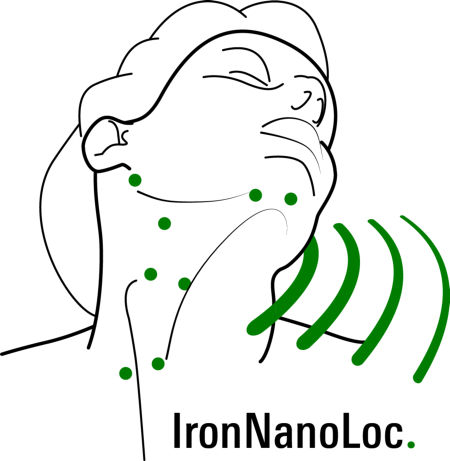The project IronNanoLoc explores the feasibility of a magnetic route to localize the sentinel lymph nodes (SLN) in the head and neck area. The project received a STW-KWF grant.
SLN biopsies are performed more frequently in clinical practice, besides breast cancer and melanoma it is now also used in oral cancer. With the use of a SLN biopsy, lymph nodes can be staged without resection of all regional lymph nodes and thereby decreasing morbidity. The use of magnetic nanoparticles has many advantages over nuclear tracers, which are the current standard to detect SLNs. Especially in the head and neck area, where the anatomy is complex and a close spatial relation is seen between the site of injection and the primary tumor in e.g. the floor of mouth. For this reason we will study the feasibility of the magnetic approach in oral cancer patients. To detect small quantities of the magnetic tracer an existing magnetometer and a novel magnetometer will be evaluated.
The novel magnetometer is based on differential magnetometry (DiffMag) and is developed within our group. In DiffMag the nonlinear magnetization characteristics of superparamagnetic iron oxide nanoparticles are exploited. Using these characteristics the detector won’t be influenced by operation room instruments and the diamagnetism of the human body. Our goal is to enable a more reliable staging, patient friendly and highly personalized treatment by implementing the magnetic route in performing a SLN biopsy.
For more information on this project you can contact:
Collaborating partners in this KWF-STW project are: UMC Utrecht, Radboud UMC, Medisch Spectrum Twente, AIM, Holland Innovative and Topic.


